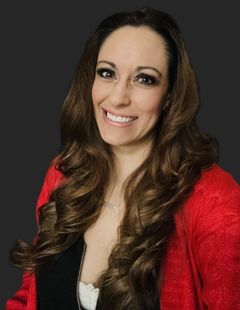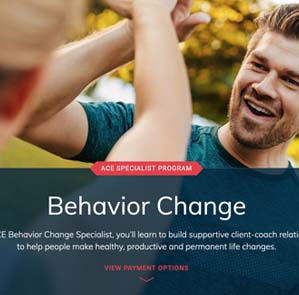
The world of health coaching as a profession and practice is continuously evolving. It is also where the pursuit of optimal well-being is at the forefront of empowering individuals to lead healthier lives. As a certified health coach, you are equipped with the knowledge and skills to guide others on their journey toward improved health and wellness. However, a pertinent question arises in this field: Should health coaches specialize?
In the vast landscape of health and wellness, specialization can be a key factor in elevating the effectiveness of a variety of professions, including health coaching. While a generalist approach allows you to address a broad spectrum of health concerns, specializing may enable you to delve deeper into specific areas, offering a more targeted and personalized approach to your clients.
This article is an exploration of health coach specialization and aims to shed light on the benefits and considerations associated with narrowing the focus of health coaching. Here, we delve into the ways in which specialization can enhance the impact of coaching interventions, cater to unique client needs and contribute to the overall evolution of the health coaching profession.
Determining if specialization is right for you can be challenging, so let’s unravel the potential advantages and challenges that come with honing expertise in specific domains of health and well-being. Through this exploration, you will become more empowered to make informed decisions about your professional path, which will ultimately foster a more robust and personalized approach to guiding individuals toward healthier, happier lives.
The Value of Specialist Programs
As you are likely aware, “specialist certifications” or “programs” offer the opportunity for health and exercise professionals to enhance their knowledge and skills in specific areas of health and wellness. These are not licensures or certifications like a Certified Personal Trainer, Certified Health Coach or Certified Group Fitness Instructor. Rather, specialist programs are intended for individuals with a genuine passion for a particular field and are designed to complement (not replace) existing professional credentials or licenses. By narrowing the focus to a chosen area of study or population, specialist programs provide a targeted approach to professional development, equipping you with the advanced knowledge and skills needed to offer specialized training to specific groups or individual clients.
Depending on the certifying body, and which certifications you hold, specialist programs can include topics such as weight management, pre- and post-natal fitness, older adult fitness, youth fitness, fitness nutrition coaching, virtual coaching, corrective exercise, behavior change and sports performance training.
It is important to note that specialist programs are intended for professionals who have already earned a professional credential or license, ensuring that participants have a foundational understanding before digging into the more advanced and specialized aspects of their chosen field. Further, these specialist programs are not narrowly intended for one group of health and exercise professionals—they are open to any certified professional wishing to carve out a niche, expand their knowledge and grow their practice.
Potential Specialist Areas for Health Coaches
As a certified health coach, like other certified health and exercise professionals, you can specialize in various areas to cater to the diverse and unique needs of your clients. Specialization allows you to deepen your knowledge, refine your skills and provide more targeted support. For example, you might find interest and value in exploring one or more of the following specialty areas:
Nutrition
- Help clients make meaningful, informed and sustainable dietary choices while staying within the nutrition scope of practice.
- Discuss principles of healthy nutrition and food preparation, nutrient needs throughout the lifecycle, essential nutrients needed by the body, and food to be included in a balanced eating pattern.
Physical Activity and Exercise
- Guide clients in developing and maintaining effective exercise routines.
- Specialize in specific types of exercise, such as muscular fitness, cardiorespiratory fitness or flexibility training.
Stress Management and Mindset
- Assist clients in coping with stress and improving mental well-being.
- Specialize in mindfulness practices or relaxation techniques.
Chronic Disease Management
- Provide support for clients dealing with chronic conditions like diabetes, hypertension or autoimmune diseases.
- Collaborate with healthcare professionals to create holistic health plans.
Weight Management and Body-image Coaching
- Help clients achieve and maintain a healthy weight while promoting a positive body image.
- Address body acceptance and self-esteem.
Lifestyle and Behavior Change Coaching
- Focus on habit formation and behavior change to promote sustainable health improvements.
- Specialize in areas such as sleep optimization, time management or goal setting.
Holistic Wellness Coaching
- Take a comprehensive approach to health, considering physical, emotional and spiritual well-being.
Corporate Wellness Coaching
- Work with organizations to implement wellness programs for employees.
- Specialize in workplace stress reduction, ergonomics and fostering a healthy work environment.
Maternal and Family Health Coaching
- Provide support for expectant mothers, new parents and families.
- Address prenatal and postpartum health and exercise and family fitness.
Aging and Senior Health Coaching
- Assist older adults in maintaining a healthy and active lifestyle, and address habits and factors that contribute to a healthy brain and cognitive functioning.
- Address age-related health concerns, mobility issues and nutritional considerations for seniors.
Considerations for Carving a Niche
As with any growth in a career or profession, there are benefits to and potential consequences for the decisions we make. Let’s examine the top 10 pros and cons of carving out a niche market with a specific focus.

Carving out a niche as a certified health coach in a specific topic or population comes with several compelling benefits:
- Expertise and Specialization: Developing expertise in a specific area allows you to become a go-to resource in that field. Potential clients are more likely to seek your services when they see you as an expert in addressing their unique needs and concerns. In other words, you are focused on solving their specific “pain point.”
- Targeted Marketing: A specialized niche makes your marketing efforts more focused and effective. You can tailor your messaging to resonate with the specific audience you aim to serve, leading to higher engagement and conversion rates.
- Increased Credibility: Specializing demonstrates a commitment to continuous learning and improvement. This commitment enhances your credibility and positions you as a knowledgeable and dedicated professional in your chosen area.
- Client Trust and Confidence: Clients often feel more confident in working with a health coach who has demonstrated experience and success in addressing issues similar to their own. Rapport is a crucial factor in building strong, lasting client–coach relationships.
- Referral Opportunities: When you specialize, you become a valuable resource for other professionals, including healthcare providers and practitioners. Other practitioners are more likely to refer clients to you when they see your expertise aligns with the specific needs of their patients.
- Personal Satisfaction: Working in a niche that aligns with your personal passion and interests can lead to greater job satisfaction. This intrinsic motivation can drive you to excel in your field and positively impact the lives of those you serve.
- Tailored Coaching Approaches: Specialization allows you to develop coaching approaches and strategies that are specifically tailored to the needs and preferences of your chosen population. This targeted approach can lead to more effective and personalized coaching interventions.
- Networking Opportunities: Focusing on a niche often opens doors to networking opportunities within that specific community. Building relationships with other professionals and organizations in your niche can further expand your reach and influence.
- Market Differentiation: In a crowded market, specializing helps you stand out from the competition. Clients are more likely to choose a health coach who clearly understands and specializes in addressing their unique challenges.
- Greater Earning Potential: Specialized expertise often commands higher fees. Clients may be willing to invest more in a coach who brings a deep understanding of their specific needs and can deliver targeted solutions.

For every positive outcome, there is a potential downside or challenge that deserves equal attention. When carving a niche or examining the value of specializing, keep these considerations in mind before selecting a path forward:
- Limited Client Pool: Focusing on a specific niche may limit your potential client pool. If the demand for your specialized services is low, it could impact your ability to attract clients and sustain a thriving practice. This is likely influenced by how you offer your services (in-person only or virtually). This will also depend on your geographic location and known competitors in that area.
- Market Fluctuations: Trends and demands in certain niches can be subject to fluctuations. A niche that is popular today might experience a decline in interest over time, affecting your client base and income.
- Dependency on Niche Viability: Success in a niche is dependent on the viability and sustainability of that niche. If circumstances change, such as shifts in consumer preferences or emerging trends, it could impact the demand for your specialized services.
- Overlooking Diverse Client Needs: Specializing too narrowly may cause you to overlook the diverse needs of potential clients. While specialization is valuable, it's important to consider broader aspects of health and wellness to address the varying concerns of individuals.
- Rapid Advancements in Knowledge: Health and exercise fields are dynamic, with new research and developments occurring regularly. Specializing may require continuous effort to stay updated, and if advancements are rapid, it can be challenging to maintain expertise in a niche.
- Risk of Burnout: Focusing intensely on a specific niche may lead to burnout, especially if the demands become overwhelming. The pressure to maintain expertise and cater to the unique needs of a specialized population can be draining.
- Less Flexibility in Services: Specialization may limit the range of services you can offer. Clients seeking a more holistic approach or a combination of services may be hesitant to engage with a coach who focuses exclusively on a narrow niche.
- Initial Learning Curve: Developing expertise in a specific niche often requires an initial learning curve. If the time and effort required for specialization are substantial, it could delay the launch and/or growth of your coaching practice.
- Market Saturation: Some niches may become saturated with professionals offering similar specialized services. Competition within a niche can be intense, requiring additional effort to distinguish yourself and attract clients.
- Difficulty in Transitioning: If circumstances or personal interests change, transitioning out of a niche can be challenging. You may need to rebrand and rebuild your client base, which can be time-consuming and may involve additional marketing efforts.
It’s clear, carving out a niche as a certified health coach offers a range of benefits, from personal fulfillment to professional success. Specialization can allow for the creation of a meaningful impact while positioning yourself as a trusted authority in your chosen field. That said, it's essential that you carefully weigh the potential downsides and make informed decisions based on your personal goals, interests and the evolving landscape of the health and exercise industry. Balancing specialization with adaptability can contribute to long-term success in the field.
Questions to Ask Yourself Before Choosing Specialization
Selecting a specialty as a health coach is a significant decision that can greatly influence your career path and success. Before choosing a specialization, consider asking yourself these five impactful questions:
- What are my passions and interests? Reflect on your personal passions and interests. Selecting a specialty aligned with what you genuinely enjoy will not only enhance your job satisfaction but also motivate you to continuously invest in your professional development.
- Who is my ideal client or population? Define your ideal client or population. Consider the demographics, characteristics and specific needs of the individuals you are most passionate about helping. Understanding your target audience will guide your specialization choice and marketing efforts.
- What gaps in the market or community needs can I address? Identify gaps in the market or community needs that align with your skills and interests. Choosing a specialty that addresses unmet needs increases the likelihood of finding a unique niche where you can make a meaningful impact.
- How does this specialization align with my values and beliefs? Ensure that the chosen specialization aligns with your values and beliefs. This alignment is crucial for maintaining authenticity and building trust with your clients. Clients are more likely to engage with a health coach whose values resonate with their own.
- What are the current and future trends in health and wellness? Stay informed about current and future trends in health and wellness. Consider whether your chosen specialization aligns with emerging trends and whether it has long-term sustainability. This foresight will help you adapt to changes in the industry.
By carefully considering these questions, you can make informed decisions when choosing a specialization. The process of self-reflection and market analysis will contribute to a more fulfilling and successful career in the evolving field of health and wellness coaching.
Expand Your Knowledge
ACE Fitness Nutrition Specialist Program
The ACE Fitness Nutrition Specialist Program is designed for health and exercise professionals who want to gain a deeper understanding of nutrition, learn how to help clients implement healthy food choices into their daily routine and understand how to address special nutritional needs for different types of clients, from those simply looking to get healthier to competitive athletes. You’ll learn how to guide clients in selecting fresh, nutrient-dense foods, and couple this knowledge with behavior change strategies that will help your clients turn smart choices into long-term habits.
ACE Behavior Change Specialist Program
This program will help you familiarize yourself with common obstacles to achieving healthy behavior change and teach you how to help clients find their own path to a more fulfilling lifestyle. You will learn strategies, such as motivational interviewing and setting SMART goals, to help clients increase energy, prevent disease and develop healthier habits.





 by
by 






